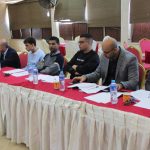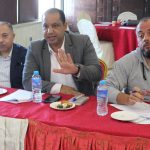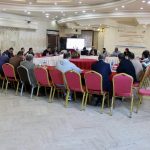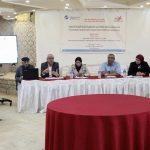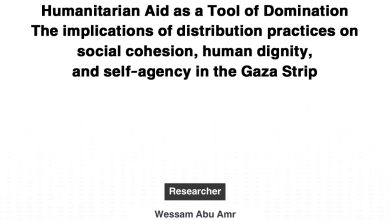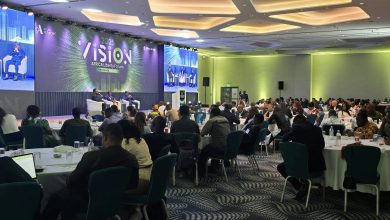PalThink Holds Panel Session Discussing Policies To Support Small Entrepreneurial Youth Projects

PalThink for Strategic Studies, in partnership with the Friedrich Naumann Foundation for Freedom, has held a panel discussion session to discuss a policy paper titled “Towards Effective National Policies to Support Youth’s Small Entrepreneurial Projects”, within the “Reimagining the Reality of Entrepreneurship in the Lens of Palestinian Youth” project, which aims at promoting entrepreneurship among graduates in Gaza.
Attended by 45 writers, students, researchers, and academics, the session comes as part of PalThink’s work as an independent think tank that continuously produces knowledge.
The session, which was facilitated by Sondos Sabra, was opened by Omar Shaaban, director of PalThink, who welcomed the audience and emphasized the role of his institution in keeping pace with all relevant political and economic developments at the national and regional levels, presenting qualitative research papers and inviting experts to discuss and comment on them to enhance the culture of dialogue.
Qaoud pointed out that youth economic projects face many obstacles represented by the lack of funding, laws, and government procedures due to the Palestinian division and the fees and taxes, in addition to challenges related to the occupation and its blockade on Gaza, which deepens Palestine’s economic dependence on Israel.
He presented a set of alternatives, most notably the establishment of a Palestinian observatory for entrepreneurship, similar to the “Global Entrepreneurship Monitor”, and its mission would be monitoring the reality of entrepreneurship in light of the division and discussing the challenges facing entrepreneurial projects, especially since the strategies to support entrepreneurship in Gaza are completely different from those in the West Bank.
Qaoud talked about the need to enact modern laws to support entrepreneurship, enhance the steadfastness of Palestinian human capital by providing them with a decent life, embracing entrepreneurial university students’ projects, enabling them to implement them, transforming small relief projects into development projects, and enabling young people to access financing sources such as banks and lending institutions.
In her turn, Samia Abdel Moneim, a university lecturer at Gaza University, said that the researcher discussed fundamental principles adopted by developed countries to promote entrepreneurship among young people, such as Saudi Arabia, Singapore, and others.
She stressed that the most notable reasons for the failure of projects are the high taxes and fees that stand as an obstacle to the establishment and management of entrepreneurial projects, in addition to the entrepreneurs’ ignorance of the applicable laws. She recommended providing allocations for entrepreneurs in the early stages of their projects so that they can reinvest the proceeds.
For his part, Ziyad Al-Maqal, a lecturer at the Faculty of Administrative and Financial Sciences at Gaza University, said that the Gaza Strip needs a national policy to support entrepreneurial projects supervised by the public, private, and civil society sectors, in addition to developing technical and vocational education.
He added that even if national unity takes place, the government sector cannot provide enough jobs for the “armies” of the unemployed, and the private sector has a greater ability to create job opportunities. Meanwhile, entrepreneurial projects must have a competitive advantage and their owners must be self-confident, he said.
The attendees’ questions revolved around the feasibility of entrepreneurial projects in reducing unemployment, means of pressure on decision-makers to enact new laws compatible with entrepreneurial projects, the role of universities and social media in spreading entrepreneurial culture among youth, and the impact of the digital economy on the Palestinian economy.



